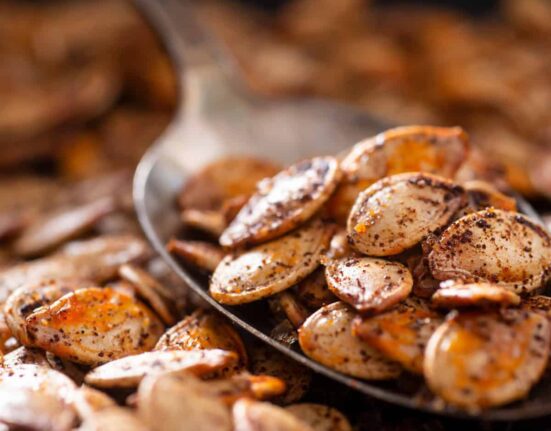Fennel ( Foeniculum vulgare), with its distinct licorice-like aroma and flavor, is a popular herb found in kitchens and apothecaries worldwide. Valued for centuries for its culinary versatility and medicinal properties, fennel is often hailed for its digestive benefits and its traditional uses in women’s health. However, as with any potent herb, understanding its potential side effects, particularly for women, is crucial for safe and effective use.
Today, we’ll take a quick dive into the side effects of fennel, specifically, fennel seeds side effects for females.
The Benefits of Fennel (A Quick Look)
Before getting into the specifics, it’s worth noting why fennel is so popular. Fennel is a fantastic ally for digestive issues, known to soothe stomach upset, ease cramping, reduce gas, and alleviate flatulence. It can even freshen your breath after meals. For new mothers, fennel acts as a galactagogue, helping to stimulate and increase breast milk production (you can get fennel tea HERE). Fennel also reduces menstrual cramping and associated fatigue.
However, as with anything, there are side effects of eating too much fennel seeds, drinking too much fennel tea, and even using fennel essential oil for certain individuals.
Potential Side Effects of Fennel for Women
While fennel offers numerous benefits, certain precautions and side effects warrant attention, especially concerning female health:
- Pregnancy Concerns: Fennel’s effect on the uterus is a key area of caution during pregnancy. Medicinal doses of fennel are generally not recommended during pregnancy as they can stimulate or relax the uterus. The essential oil of fennel is toxic if taken internally during pregnancy and may even lead to miscarriage. Fennel was also used as a traditional abortifacient in medicinal doses.
- Hormonal Activity: Fennel is recognized for its estrogenic properties and its ability to modulate estrogen levels. Experimental models have shown that acetone extracts of fennel can induce estrus, and cause the growth of mammary glands, oviducts, the cervix, and the vagina, alongside an observed antiandrogenic effect. This hormonal influence is why it’s considered helpful in easing menopausal symptoms like hot flashes and balancing the female reproductive system.
- Lactation (Clarification): Fennel is widely used and considered safe for promoting lactation. However, it is specifically recommended to avoid fennel essential oil if you are breastfeeding. The distinction between the whole herb and the concentrated essential oil is important.
- Allergic Reactions: Though rare, allergic reactions to fennel have been reported, sometimes manifesting as skin or respiratory tract issues. Individuals with “celery-carrot-mugwort-spice” syndrome or those sensitized to celery or carrot may display allergic reactions to fennel due to cross-reactivity within the Umbelliferae family.
- Aggravation of Gastroesophageal Reflux (GER): While fennel is a carminative often used for dyspepsia, high doses of carminatives, including fennel, can aggravate GER.
- Photo-dermatitis: In rare cases, people have reported photo-dermatitis (a skin rash triggered by sunlight exposure) while taking fennel seed.
- Potential Carcinogenic Effect (Estragole): There is a remote possibility of a carcinogenic effect due to estragole, a compound present in sweet fennel, as well as anis vert and anis star.
- Excessive Doses: While generally safe in normal doses, excessive consumption of fennel seeds can be toxic. The essential oil, especially, should not be taken internally due to potential toxicity to the stomach, kidneys, and nervous system, which could lead to stupefaction, tremors, or seizures.
- Drug Interactions: Fennel seed tea side effects include reduced absorption of ciprofloxacin, an antibiotic. This interaction is thought to be due to the herb’s rich mineral content. People taking ciprofloxacin are advised to avoid fennel-containing products or to consider staggering the administration times of fennel and ciprofloxacin.
Despite the potential side effects, fennel is a safe, versatile, and beneficial herb, especially for digestive comfort and supporting lactation.
However, women, particularly those who are pregnant or considering pregnancy, should be aware of its potential to stimulate the uterus and its estrogenic activity.
You may also enjoy reading:
Fermented Foods for Digestion
How to Relieve Gas – The Herbalist’s Way














Leave feedback about this